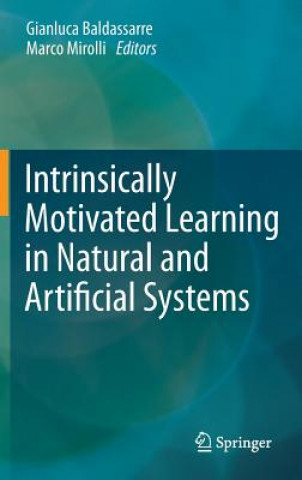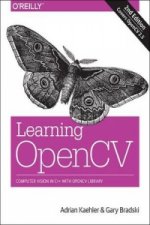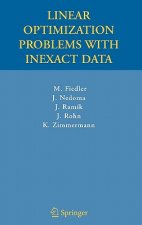
Kézbesítés
Vásárlási tanácsadó





Nem vált be? Semmi gond! Nálunk 30 napon belül visszaküldheti
 Ajándékutalvány
bármilyen értékben
Ajándékutalvány
bármilyen értékben
Ajándékutalvánnyal nem nyúlhat mellé. A megajándékozott az ajándékutalványért bármit választhat kínálatunkból.
Intrinsically Motivated Learning in Natural and Artificial Systems
 Angol
Angol
 509 b
509 b
30 nap a termék visszaküldésére
Ezt is ajánljuk


It has become clear to researchers in robotics and adaptive behaviour that current approaches are yielding systems with limited autonomy and capacity for self-improvement. To learn autonomously and in a cumulative fashion is one of the hallmarks of intelligence, and we know that higher mammals engage in exploratory activities that are not directed to pursue goals of immediate relevance for survival and reproduction but are instead driven by intrinsic motivations such as curiosity, interest in novel stimuli or surprising events, and inter est in learning new behaviours. The adaptive value of such intrinsically motivated activities lies in the fact that they allow the cumulative acquisition of knowledge and skills that can be used later to accomplish tness-enhanc ing goals. Intrinsic motivations continue during adulthood, and in humans they underlie lifelong learning, artistic creativity, and scientific discovery, while they are also the basis for processes that strongly affect human well-being, such as the sense of competence, self-determination, and self-esteem.§This book has two aims: to present the state of the art in research on intrinsically motivated learning, and to identify the related scientific and technological open challenges and most promising research directions. The book introduces the concept of intrinsic motivation in artificial systems, reviews the relevant literature, offers insights from the neural and behavioural sciences, and presents novel tools for research. The book is organized into six parts: the chapters in Part I give general overviews on the concept of intrinsic motivations, their function, and possible mechanisms for implementing them; Parts II, III, and IV focus on three classes of intrinsic motivation mechanisms, those based on predictors, on novelty, and on competence; Part V discusses mechanisms that are complementary to intrinsic motivations; and Part VI introduces tools and experimental frameworks for investigating intrinsic motivations.The contributing authors are among the pioneers carrying out fundamental work on this topic, drawn from related disciplines such as artificial intelligence, robotics, artificial life, evolution, machine learning, developmental psychology, cognitive science, and neuroscience. The book will be of value to graduate students and academic researchers in these domains, and to engineers engaged with the design of autonomous, adaptive robots.§The contributing authors are among the pioneers carrying out fundamental work on this topic, drawn from related disciplines such as artificial intelligence, robotics, artificial life, evolution, machine learning, developmental psychology, cognitive science, and neuroscience. The book will be of value to graduate students and academic researchers in these domains, and to engineers engaged with the design of autonomous, adaptive robots.It has become clear to researchers in robotics and adaptive behaviour that current approaches are yielding systems with limited autonomy and capacity for self-improvement. To learn autonomously and in a cumulative fashion is one of the hallmarks of intelligence, and we know that higher mammals engage in exploratory activities that are not directed to pursue goals of immediate relevance for survival and reproduction but are instead driven by intrinsic motivations such as curiosity, interest in novel stimuli or surprising events, and inter est in learning new behaviours. The adaptive value of such intrinsically motivated activities lies in the fact that they allow the cumulative acquisition of knowledge and skills that can be used later to accomplish tness-enhanc ing goals. Intrinsic motivations continue during adulthood, and in humans they underlie lifelong learning, artistic creativity, and scientific discovery, while they are also the basis for processes that strongly affect human well-being, such as the sense of competence, self-determination, and self-esteem.§This book has two aims: to present the state of the art in research on intrinsically motivated learning, and to identify the related scientific and technological open challenges and most promising research directions. The book introduces the concept of intrinsic motivation in artificial systems, reviews the relevant literature, offers insights from the neural and behavioural sciences, and presents novel tools for research. The book is organized into six parts: the chapters in Part I give general overviews on the concept of intrinsic motivations, their function, and possible mechanisms for implementing them; Parts II, III, and IV focus on three classes of intrinsic motivation mechanisms, those based on predictors, on novelty, and on competence; Part V discusses mechanisms that are complementary to intrinsic motivations; and Part VI introduces tools and experimental frameworks for investigating intrinsic motivations.§The contributing authors are among the pioneers carrying out fundamental work on this topic, drawn from related disciplines such as artificial intelligence, robotics, artificial life, evolution, machine learning, developmental psychology, cognitive science, and neuroscience. The book will be of value to graduate students and academic researchers in these domains, and to engineers engaged with the design of autonomous, adaptive robots.
Információ a könyvről
 Angol
Angol
Kategória




 Hogyan vásároljunk
Hogyan vásároljunk



































